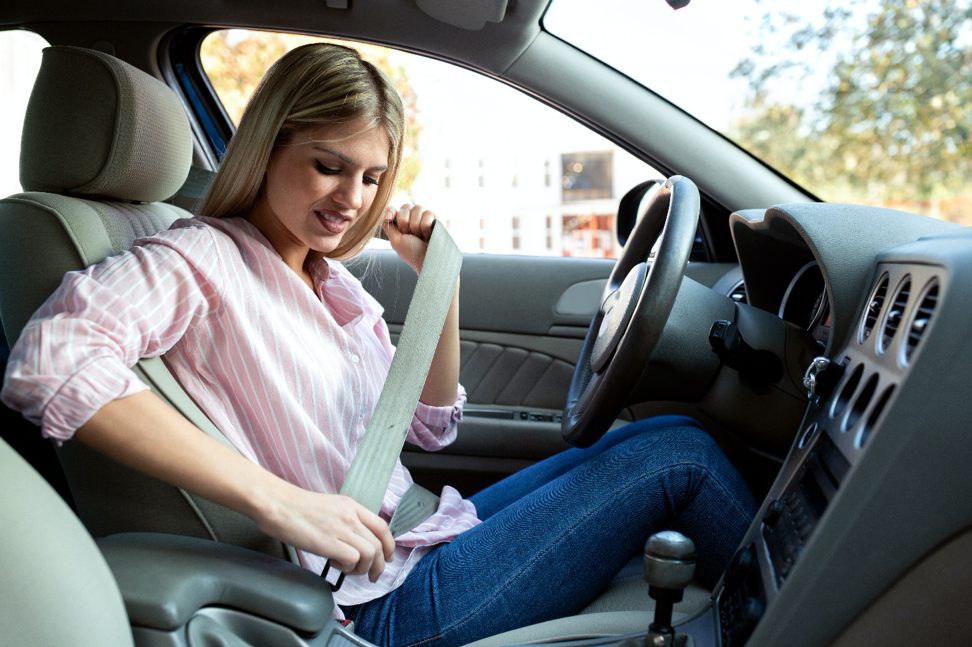This may surprise you – it certainly did us!
An Insurance Institute for Highway Safety study finds that rear passengers may lack enough protections in head-on collisions. If you are sitting in the back seat, you could be at more risk of dying or suffering serious injury in a head-on collision than someone sitting in the front.
In some crashes, poorly engineered seat belts are killing or badly injuring back-seat passengers while front-seat passengers in the same vehicle survive or avoid serious injury.
IIHS is using the findings to design a crash test that will assess the safety of rear-seat passengers in new vehicles.
“Automakers have done a great job at improving restraint systems for drivers and front seat passengers,” IIHS President David Harkey told USA TODAY. ” Less attention has been paid to the back seat and the safety of those passengers.”
One reason is that rear seatbelts are not made with the same care as front seatbelts.
Seat belt pre-tensioners, which tighten the belt immediately before the collision but allow enough space to mitigate injury, are insufficient in the back seat, IIHS found.
“It’s not that the rear seat has become less safe, it’s that the front seat has become more safe over time,” Harkey said.

The study assessed the impact of 117 deadly real-world crashes on older children and adults who were wearing seatbelts. Experts continue to recommend that young children be strapped into car seats in the back and not seated in the front, where powerful airbags pose the threat of injury.
In some cases, back-seat passengers are suffering chest injuries from belts that are too tight, while in others their heads are smashing into the seat.
Harkey said the results suggest that it’s time for automakers to consider front airbags in the back seat. No vehicle currently has them, he said.
IIHS also said that automakers could consider inflatable seat belts, such as ones introduced by Ford and Mercedes-Benz.
With ride-hailing apps like Uber and Lyft taking off, it’s increasingly important to consider safety upgrades, Harkey said.
“There’s the potential that we’re going to have a lot more people riding in rear seats as we move forward and therefore greater risk of injury to rear seat passengers,” Harkey said.
Safety is a concern for us here at Benton White Insurance. It goes without saying that EVERYONE in your vehicle including yourself should be buckled in before the vehicle begins to move. Since we have 11 grandchildren that ride with us often, we spend considerable time before every drive to MAKE SURE everyone is buckled in safely. Developments will continue to evolve for better back seat safety but in the meantime, buckling in is lifesaving vs. riding without seat belts.
If we can assist you with anything insurance, please let us know. We’re easy to reach! EMAIL us at info@BentonWhite.net or TEXT or CALL us at 615.377.1212. We are always ready to earn your business!
Sources: USA Today / Nathan Bomey – story writer





